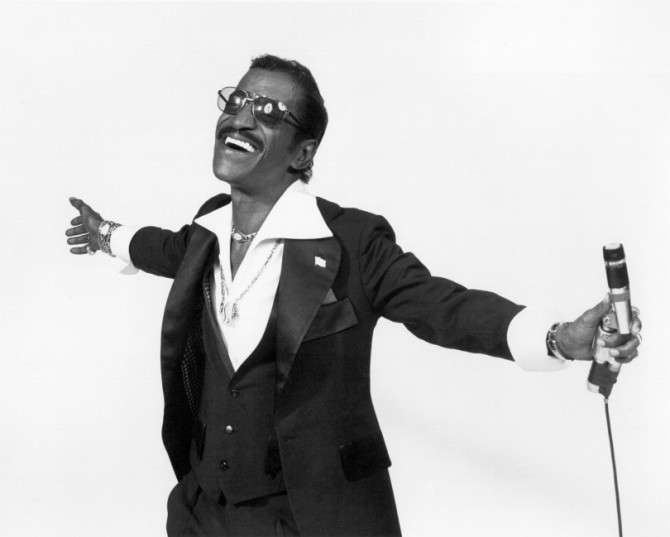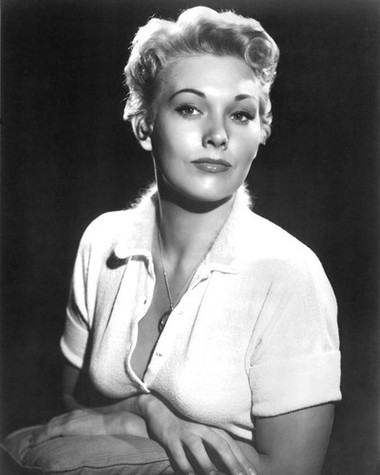Genre: Period/50s
Premise: The controversial relationship between Sammy Davis Jr. and movie star Kim Novak, an interracial celebrity pairing at a time when interracial relationships were outlawed in half of America.
About: This script won the Austin Film Festival screenplay contest. It also finished in the finals of the Nicholl Fellowship (but was not one of the winners). This draft of the script (which was in the contests) was written by Matthew Fantaci but is currently being rewritten by Janet Mock, who wrote on “Pose,” the Ryan Murphy show that chronicles the downtown social and literary scene in 1987 New York.
Writer: Matthew Fantaci
Details: 95 pages
I’ve always seen Sammy Davis Jr. as a curiosity. He was so unique that at times, he appeared cartoonish. Maybe that’s why I was never into him. But there’s no denying that the Rat Pack days were unlike anything we’ve seen before or since in Hollywood. Here in the 21st century, you get more of the Entourage approach. One famous guy and a lot of Turtles.
So I popped this one open with a doubtful click, hoping it would win me over.
It’s 1950s Vegas. Sammy Davis Jr. is one of the most popular entertainers on the planet. Black, Jewish, and Puerto-Rican, he was truly one of a kind. And boy could he light up a room. Ironically, back then, Sammy couldn’t even stay at the hotels he performed at. Black people weren’t allowed rooms.
Meanwhile, Kim Novak had become one of the biggest movie stars in the world. But unlike other stars, Novak was rebellious. You see, back then, everything about your person was crafted by studio heads. Novak was known by the world as “The Lavender Girl.” Yet she hated lavender. And the fact that she openly rejected the label infuriated her handlers.
One day, after a Sammy performance, he bumps into an exhausted Kim, who’s just finished a long photo shoot. Kim doesn’t have the strength to bullshit and falls into a natural friendly conversation with Sammy. It goes so well that the two start hanging out regularly. And then sleeping together. Which normally would be great. Except that in 1950s America, nobody accepted interracial relationships, especially one between a black man and a white woman.
When Columbia studio head and evil bully Harry Cohn gets word of this, he calls Kim in and tells her that if she doesn’t end this before the gossip columnists get hold of it, he’s going to ruin her life. Although I have not wikipedia searched Harry Cohn, the script paints him as some combination of Harvey Weinstein and Hitler. So when he says he’s going to ruin someone’s life, you get the impression he means it.
Despite that, Sammy and Kim decide to take their romance semi-public, appearing at friends’ parties together. There’s only one step left to go and that’s to date in public. The two discuss what this step means and concede that there’s no coming back from it. So if they’re going to do this, they have to make sure they REALLY want to do it.
The pressure eventually overwhelms them, however, and they give in to the threats (even coming from Sammy’s friend Frank Sinatra), splitting up. It’s a decision that will leave both sides wondering “what if” for the rest of their lives.
If you’re going to make a commentary on a hot button social issue, I think this is the way to go. You don’t give us a non-fiction retelling of whatever’s been popping up on our news feeds for the last 83 days. You explore a story that has similar themes and overlap with the hot button issue, but because it’s not the exact same, it forces the reader to think to make the connections. It makes the audience feel like they’ve solved a puzzle, which is more fun than having someone place a Rubik’s Cube in front of your face that’s already completed.
But I can never discuss these scripts without going back to my frustrations with the biopic format. While I like that this isn’t a cradle to grave Sammy Davis Jr. story and that, instead, we’re seeing this specific charged section of his life, I still spent half the read wondering, “What is the point of this? Where are we going? Where’s the goal?”
The only thing pushing the story along is “Will they or won’t they?” And while it’s certainly more charged than the storylines we typically get in “will they or won’t they?” (romantic comedies), I still felt a slow narrative that left me wanting more. I need that character goal. I needed Sammy to be going after something.
Since he’s not going after anything, all his scenes are some variation of waiting for when he’s going to see Kim next.
And don’t get me wrong. It’s possible to make these narratives work. The script is packed with conflict. And it has one of the better villains I’ve read in a while in Harry Cohn. But it’s still anchored down by that dull rickety story engine known as “Will they or won’t they?”
Getting back to Sammy, he’s a real tough guy to take seriously. He was such a character in real life that I found myself struggling to see him as a romantic man trying to engage in a relationship. It’s like trying to imagine Charlie Chaplin in a relationship after watching Modern Times. Or David Blaine confessing his love without eating a live frog and then having it jump out of his ear.
But if you’re into this era, into old Hollywood, into the Rat Pack, you’ll probably love this. It even feels like an old fashioned movie, with the quick witty dialogue banter between Sammy and Kim that was popular in movies at the time. The combination of an era I was never a huge fan of with the evil genre known as “biopic” prevented me from ever getting into this.
[ ] What the hell did I just read?
[x] wasn’t for me
[ ] worth the read
[ ] impressive
[ ] genius
What I learned: One plotline too few. Sometimes a screenplay feels thin. One of the reasons may be that you’re one plotline too thin. You needed an extra plot engine going on, possibly with work/career. Or you needed an extra relationship to explore, something that gave you five more scenes throughout the script. That’s what Scandalous felt like to me. It needeed one more plotline to fill it out. Even the main relationship here didn’t have as many scenes as you’d expect it to have. And that left the storyline feeling thin.



